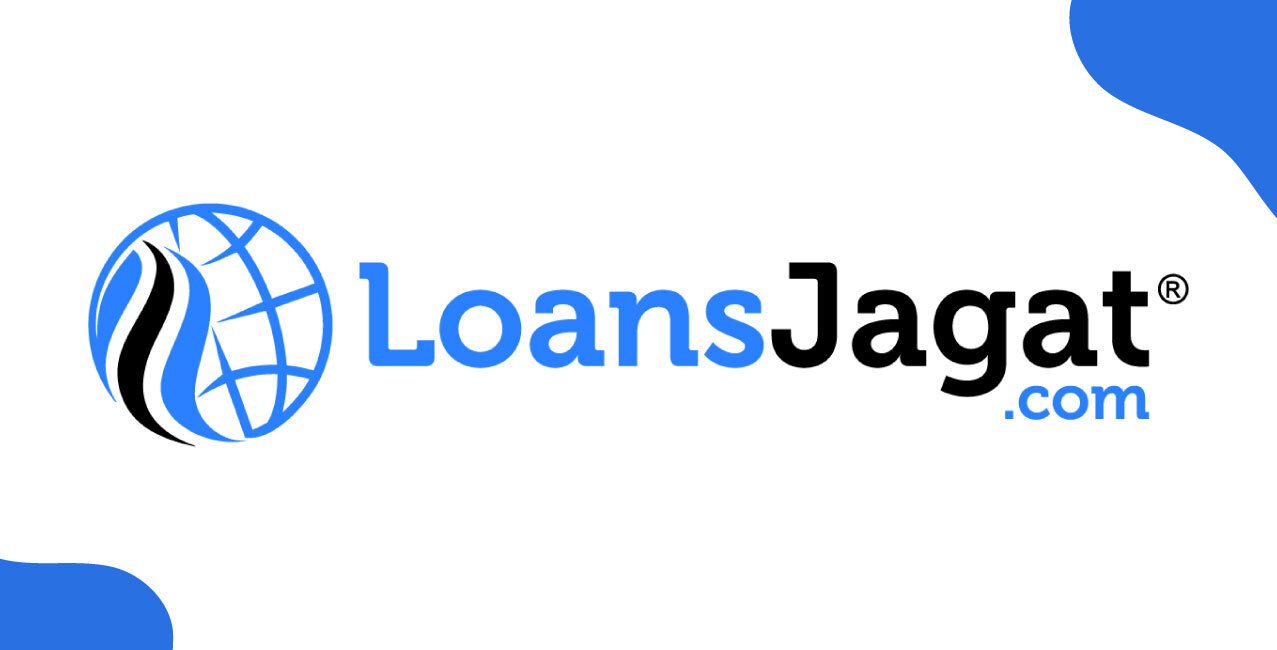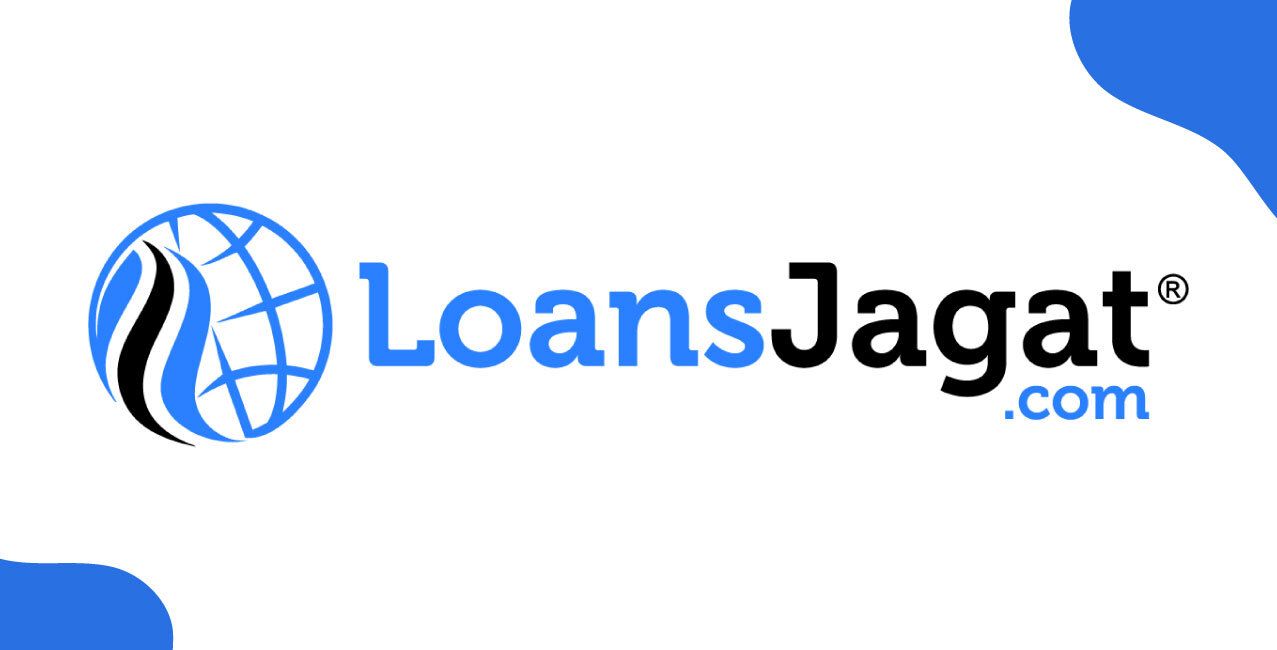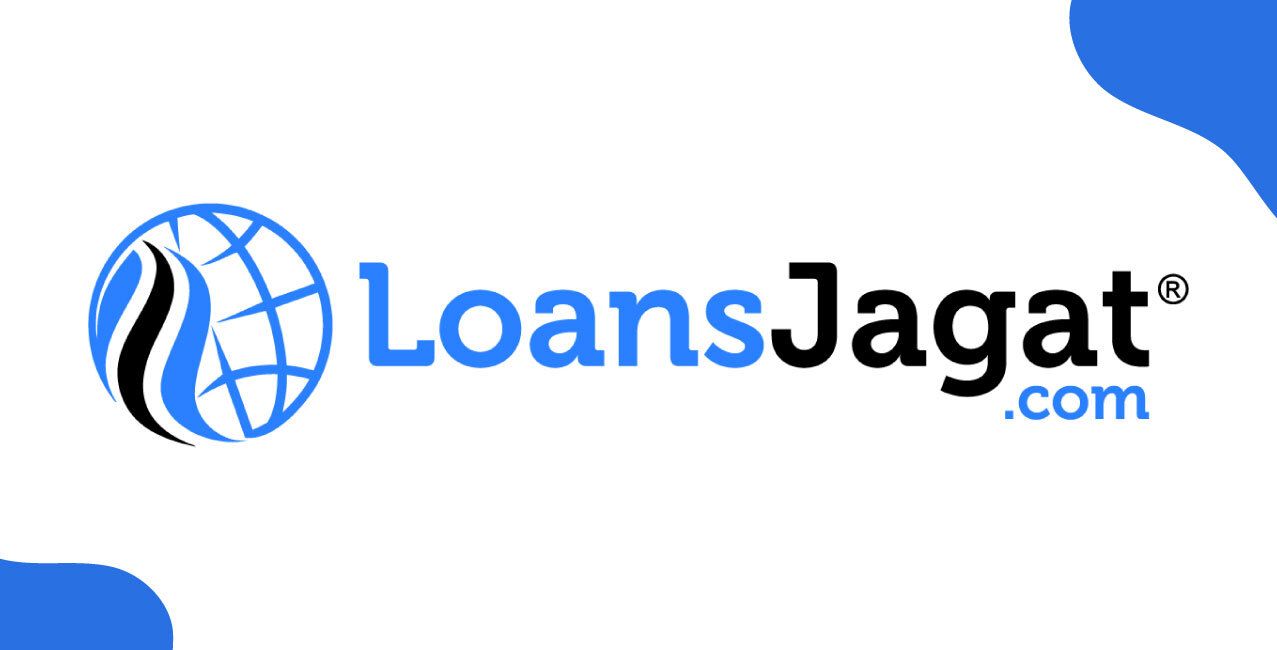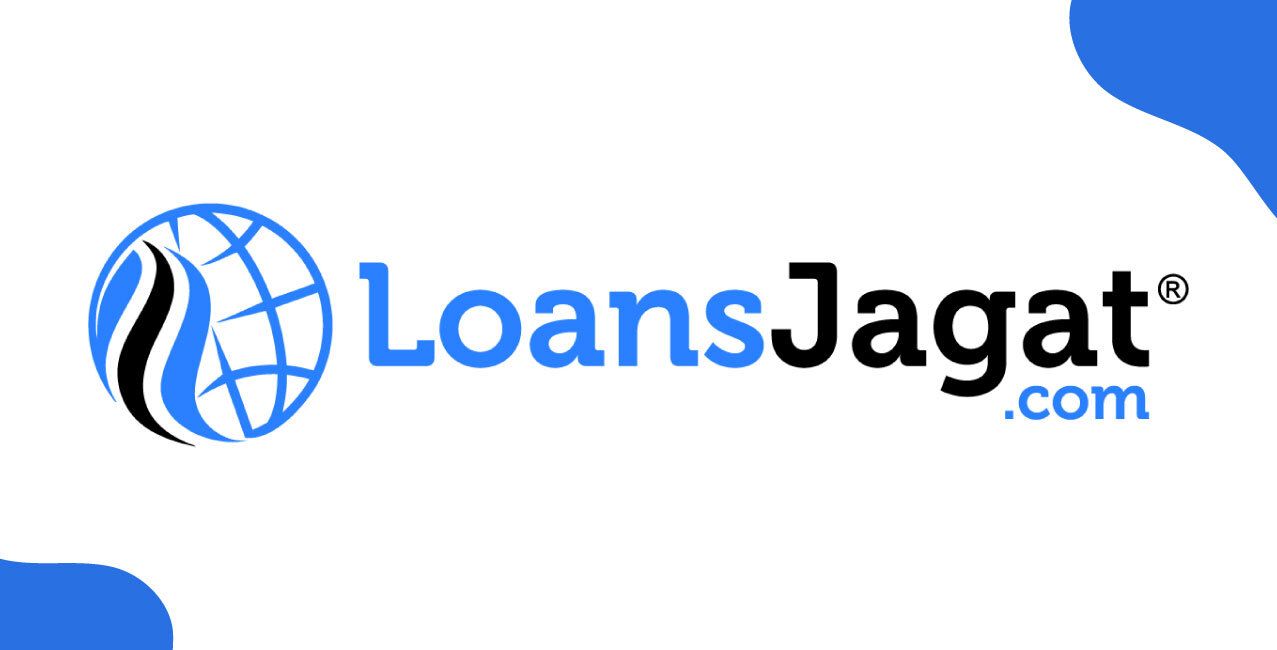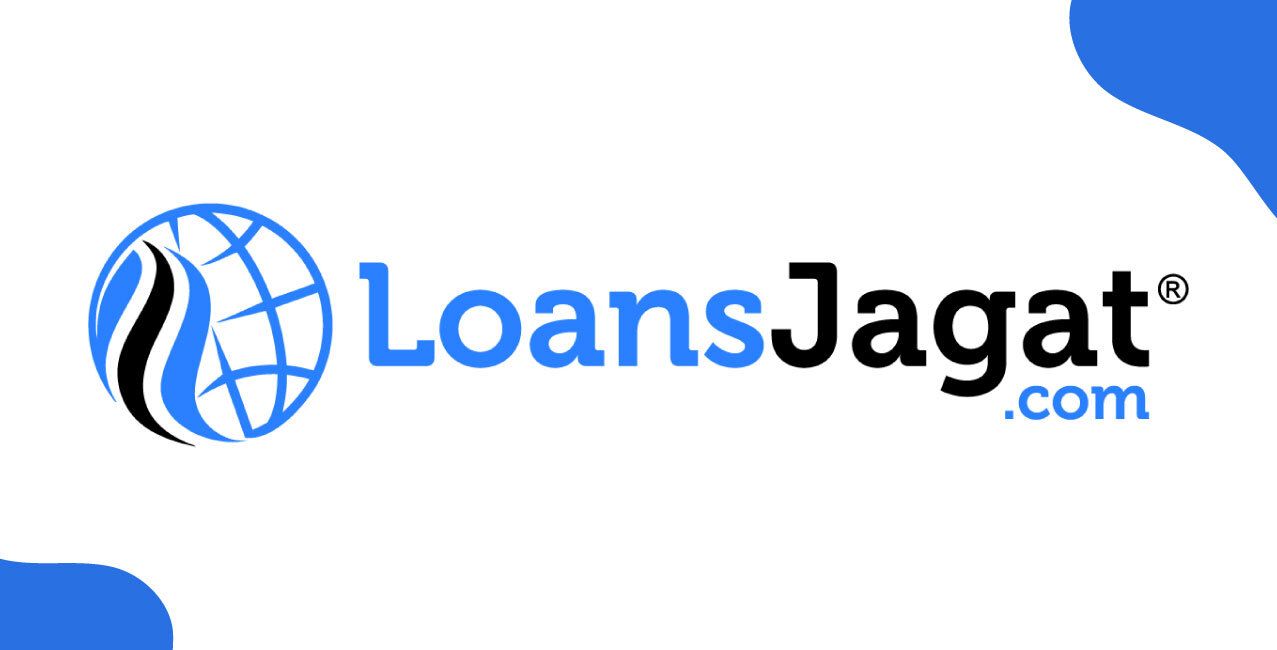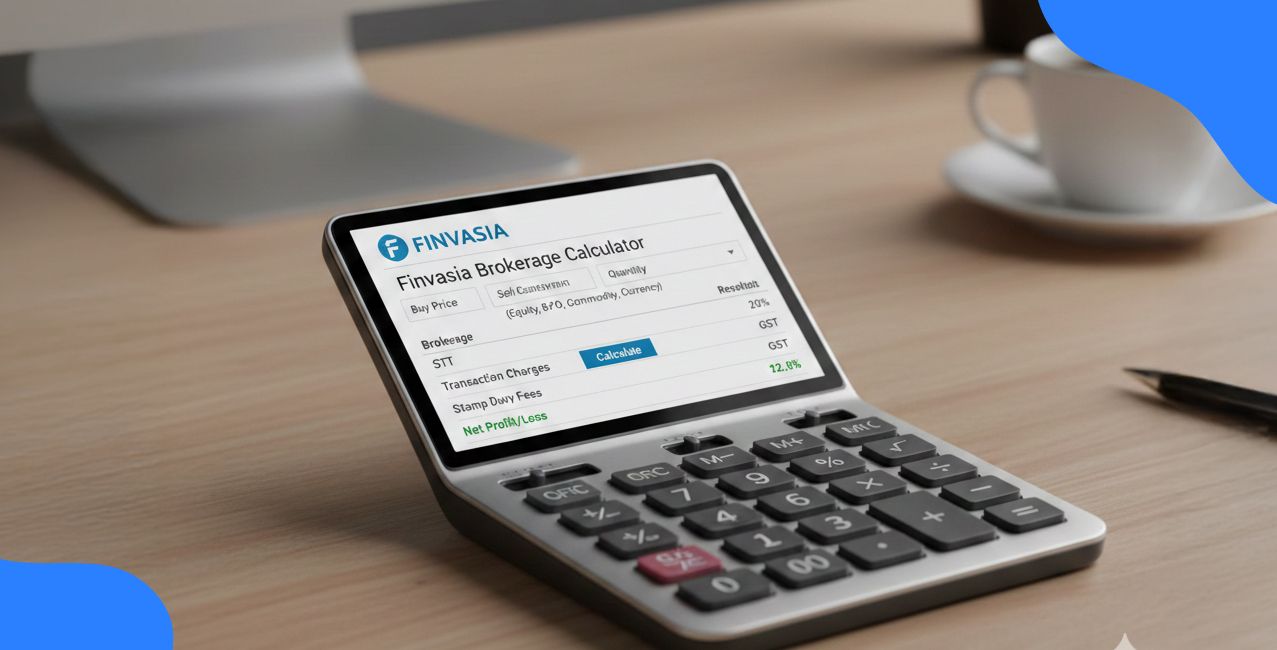Federal Bank Zero Balance Account: A Comprehensive Guide
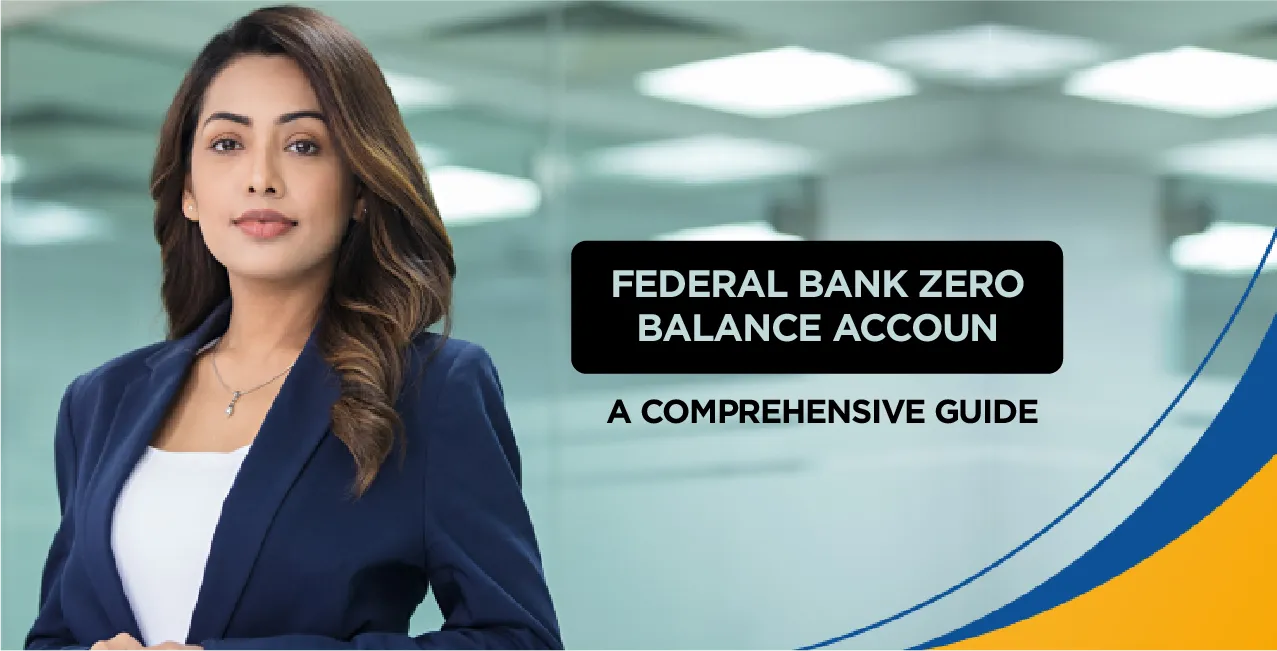
Check Your Loan Eligibility Now
By continuing, you agree to LoansJagat's Credit Report Terms of Use, Terms and Conditions, Privacy Policy, and authorize contact via Call, SMS, Email, or WhatsApp
Imagine Rahul, a 22-year-old student, moving to a new city for his higher studies. With limited financial support from his family, he needs a bank account that allows him to manage his money without worrying about maintaining a minimum balance. After researching, he opened a Federal Bank Zero Balance Account, which gives him:
- Free mobile and internet banking, allowing him to pay his tuition fees and manage his daily expenses online.
- A debit card for cash withdrawals ensures he can access money anytime, anywhere.
- Interest on his savings, helping him grow his money passively.
Similarly, Meena, a small business owner, Ramesh, a daily wage worker, and Sunita, a pensioner, each have different financial needs. Yet, all of them benefit from Federal Bank’s Zero Balance Accounts, which offer them banking services without financial stress.
This guide explores how Federal Bank’s Zero Balance Account can help different types of customers, ensuring financial inclusion and convenience for everyone.
Federal Bank Zero Balance Account Overview
Federal Bank, one of India’s leading private sector banks, offers a Zero Balance Account to cater to individuals looking for a hassle-free banking experience. A Zero Balance Account is designed primarily for individuals who may not be able to maintain a minimum balance but still want access to essential banking services.
Read More - Federal Bank Timings – Working Hours, Lunch Break & Holiday Schedule
Federal Bank’s Zero Balance Account provides benefits such as free digital banking services, a debit card, and access to mobile and internet banking. This account is particularly useful for students, salaried employees, and low-income individuals who require banking facilities without the burden of maintaining a minimum balance.
Types of Federal Bank Zero Balance Accounts
Federal Bank offers various types of Zero Balance Accounts to cater to different customer needs. Some of the prominent types include:
Basic Savings Bank Deposit Account (BSBDA)
- Designed for financially weaker sections of society.
- No requirement to maintain a minimum balance.
- Free ATM/debit card issuance.
- Limited transactions per month to comply with RBI regulations.
FedFirst Savings Account
- Specially curated for children under 18 years of age.
- No minimum balance requirement.
- Attractive interest rates.
- Free online banking services for parents to manage funds.
Salary Accounts
- Designed for salaried employees where employers tie-up with Federal Bank.
- No minimum balance requirement.
- Free ATM/debit card and other digital banking facilities.
- Special benefits such as free insurance and higher transaction limits.
Government Schemes Linked Accounts
- Zero balance accounts are linked to government schemes like Jan Dhan Yojana.
- Facilitates direct benefit transfers (DBT).
- No maintenance charges.
How to Open a Federal Bank Zero Balance Account Online & Offline
Opening a Federal Bank Zero Balance Account is a simple process that can be done both online and offline.
Online Process
- Visit the official Federal Bank website or download the Federal Bank mobile app.
- Select the ‘Zero Balance Account’ opening option, or search for the different types of accounts mentioned in the previous section separately.
- Fill in the online application form with personal details like name, contact number, and Aadhaar/PAN details.
- Complete the KYC (Know Your Customer) verification through video KYC or upload scanned documents. Apply and receive an account number upon approval.
- Activate the account by setting up online banking and using the issued debit card.
Benefits of Online Account Opening
Opening a Federal Bank Zero Balance Account online is quick and convenient, allowing customers to apply from anywhere, anytime without visiting a branch. The video KYC feature ensures a paperless and seamless verification process, reducing the hassle of physical document submission. Additionally, the process is faster, with account activation and access to digital banking services within minutes.
Offline Process
- Visit the nearest Federal Bank branch using the branch locator.
- Request a Zero Balance Account opening form.
- Fill out the form with the necessary details.
- Attach the required KYC documents.
- Apply to the bank representative.
- Upon verification, the account is activated, and the welcome kit is provided.
Benefits of Offline Account Opening
Opting for the offline method allows customers to get personalised assistance from bank representatives, making it ideal for those less familiar with digital processes. It also ensures that all queries are addressed on the spot, helping applicants avoid mistakes that could delay account approval. Moreover, customers receive a physical welcome kit immediately, including their debit card, chequebook, and passbook, for an instant start to their banking experience.
Federal Bank Zero Balance Account Fees & Charges
Federal Bank’s Zero Balance Account is designed to be affordable. However, there are certain charges applicable based on transactions and additional services:
Account Type | Account Opening | ATM/Debit Card Issuance | ATM Withdrawals (Federal Bank ATMs) | ATM Withdrawals (Other Bank ATMs) | Chequebook Issuance | Internet/Mobile Banking | Fund Transfer (IMPS/NEFT/RTGS) | Other Key Charges |
Basic Savings Bank Deposit Account (BSBDA) | Free | Free (for first-time issue) | Free | Free up to 4 transactions/month, then ₹20 per transaction | The first chequebook is free, and subsequent ones are @ ₹3 per leaf | Free | NEFT: ₹2 - ₹20 per transaction RTGS: ₹20 - ₹45 per transaction | Cash Handling Charges: Free up to ₹2 lakh/month; beyond ₹3.25/₹1000 |
FedFirst Savings Account | Free | Free | Free | Free up to 5 transactions/month, then ₹20 per transaction | The first chequebook is free, and subsequent ones are @ ₹3 per leaf | Free | IMPS: ₹2.50 - ₹15 per transaction | Counter Cash Withdrawals: Free up to 5 times/month, ₹50 beyond |
Salary Accounts | Free | Free | Free | Free | The first 2 chequebooks are free, and it is ₹3 per leaf after that | Free | Free transactions within employer-defined limits | No AMB charges if the salary is credited every month |
Government Schemes Linked Accounts | Free | Free | Free | Free up to RBI-regulated limits, then ₹20 per transaction | The first chequebook is free, and subsequent ones are @ ₹3 per leaf | Free | Free government benefit transfers | ATM Decline Charges: ₹25 per instance |
Real-Life Scenarios for Different Federal Bank Zero Balance Accounts
1. Basic Savings Bank Deposit Account (BSBDA)
Scenario: Ramesh, a daily wage worker, opens a BSBDA account to receive his government subsidy of ₹1,500 per month. He withdraws cash four times a month from another bank ATM, but on the fifth withdrawal, he is charged ₹20. Since his total transactions remain low, he benefits from free ATM access at Federal Bank ATMs and zero account maintenance fees, making banking accessible without unnecessary costs.
Benefit: Ideal for low-income individuals who need an account for basic transactions without worrying about minimum balance requirements or hidden charges.
2. FedFirst Savings Account
Scenario: Aditi, a 12-year-old student, receives a monthly allowance of ₹5,000 from her parents in her FedFirst Savings Account. She withdraws cash twice from an ATM and transfers ₹1,500 via IMPS to buy books online, incurring a ₹5 transaction fee. As she is under 18 years old, her parents monitor her savings through free mobile banking, helping her develop healthy financial habits.
Benefit: It is perfect for young savers who need a safe and controlled banking environment, free digital banking access, and limited transaction fees to encourage responsible spending.
3. Salary Account
Scenario: Raj, a software engineer, earns a monthly salary of ₹80,000, which is credited directly into his Salary Account. He transfers ₹50,000 via RTGS to his family’s account without any fees. He also receives two free chequebooks per year, saving ₹600 annually. Since he never has to maintain a minimum balance, his finances remain flexible and hassle-free.
Benefit: Best for salaried employees who require free fund transfers, zero balance maintenance, and additional banking perks like free chequebooks and ATM withdrawals.
4. Government Schemes Linked Account
Scenario: Sunita, a widow receiving a pension of ₹3,000 per month, has a government-linked account to receive her benefits. She withdraws ₹2,500 at a Federal Bank ATM, which is completely free. When she tries to withdraw ₹500 from another bank’s ATM for the fifth time in a month, she is charged ₹20. However, all government deposits are processed without any fees, ensuring she receives her full benefits.
Benefit: Great for pensioners, subsidy beneficiaries, and low-income families who require free access to their government funds and low-cost banking services.
These scenarios highlight the advantages of each account type and how they help customers save money while making banking more accessible.
Federal Bank Zero Balance Account Interest Rates
Federal Bank offers competitive interest rates on its Savings Accounts, including Zero Balance Accounts. The interest is calculated daily based on the end-of-day balance and is credited quarterly to the account.
As of the latest information, the interest rates for Savings Accounts are as follows:
- Balances up to ₹5,00,000: 3.05% per annum
- Balances above ₹5,00,000: 3.35% per annum
Please note that interest rates are subject to change based on regulatory guidelines and bank policies. For the most current rates and specific account features, it is advisable to visit the official Federal Bank website or contact the nearest branch.
Real-Life Scenarios for Federal Bank Zero Balance Account Interest Rates
1. Basic Savings Bank Deposit Account (BSBDA)
Scenario: Ramesh, a farmer, maintains an average balance of ₹50,000 in his BSBDA account to save for agricultural expenses.
With an interest rate of 3.05% per annum, he earns:
- Annual Interest = ₹50,000 × 3.05% = ₹1,525
- Quarterly Interest = ₹1,525 ÷ 4 = ₹381.25
Benefit: Ramesh’s savings grow passively without needing a minimum balance, helping him earn extra funds for future farming needs.
2. FedFirst Savings Account
Scenario: Aditi, a 15-year-old student, receives ₹10,000 from her parents every month for her education fund. She keeps the savings in her FedFirst Savings Account and doesn’t make withdrawals. After a year, assuming an average balance of ₹1,20,000:
- Annual Interest = ₹1,20,000 × 3.05% = ₹3,660
- Quarterly Interest = ₹3,660 ÷ 4 = ₹915
Benefit: Aditi builds her savings for future college expenses, with no minimum balance requirement, and benefits from compounded interest growth.
3. Salary Account
Scenario: Raj, a software engineer, maintains a balance of ₹4,00,000 in his Salary Account for emergencies. With an interest rate of 3.05% per annum, he earns:
- Annual Interest = ₹4,00,000 × 3.05% = ₹12,200
- Quarterly Interest = ₹12,200 ÷ 4 = ₹3,050
If his balance crosses ₹5,00,000, the additional amount earns 3.35% per annum:
- Extra Interest = (₹6,00,000 - ₹5,00,000) × 3.35% = ₹3,350
Benefit: Raj’s salary account not only provides banking convenience but also generates extra passive income, helping him build a financial cushion.
4. Government Schemes Linked Account
Scenario: Sunita, a senior citizen, receives a government pension of ₹12,000 per month and maintains an average balance of ₹1,50,000. At 3.05% per annum, she earns:
- Annual Interest = ₹1,50,000 × 3.05% = ₹4,575
- Quarterly Interest = ₹4,575 ÷ 4 = ₹1,143.75
Benefit: Sunita earns extra income on her pension savings without paying fees, making it easier for her to cover daily expenses without depleting her balance.
These scenarios illustrate how customers benefit from zero-balance banking while earning a passive income, ensuring financial growth without extra effort.
Eligibility Criteria for Federal Bank Zero Balance Account Opening
To open a Zero Balance Account with Federal Bank, customers must meet the following eligibility criteria:
- Must be an Indian citizen.
- Age criteria:
- 18+ years for individual accounts.
- Under 18 years for children’s accounts with a guardian.
- 18+ years for individual accounts.
- Should have valid KYC documents (Aadhaar, PAN, Voter ID, etc.).
- For salary accounts, employment proof is required.
- For government scheme accounts, eligibility under specific schemes must be met.
Real-Life Scenarios for Federal Bank Zero Balance Account Eligibility
1. Basic Savings Bank Deposit Account (BSBDA)
Scenario: Ramesh, a 40-year-old daily wage worker, wants to open a bank account to receive government subsidies. He does not have a stable income and cannot maintain a minimum balance. Since he is an Indian citizen and has provided his Aadhaar and Voter ID for KYC verification, his BSBDA account is approved.
Benefit: Ramesh can now receive government benefits directly, withdraw money for free, and save small amounts without worrying about penalties for non-maintenance of balance.
2. FedFirst Savings Account
Scenario: Aditi, a 12-year-old student, wants to start saving money from her monthly ₹2,000 pocket money. Since she is a minor, her father acts as her guardian and submits his Aadhaar and PAN card for KYC verification. After approval, she gets a FedFirst Savings Account linked to her father’s mobile banking app for monitoring.
Benefit: Aditi learns financial discipline early, earns quarterly interest on savings, and can access digital banking under parental supervision.
3. Salary Account
Scenario: Raj, a 28-year-old IT professional, starts a new job with a monthly salary of ₹60,000. His employer has a tie-up with Federal Bank, and he is asked to submit his employment letter and PAN card for opening a Salary Account. Once verified, his account is activated, and his first salary is credited without any deductions for non-maintenance of balance.
Benefit: Raj enjoys free banking services, unlimited ATM withdrawals, and automatic salary credits while avoiding hidden banking fees.
4. Government Schemes Linked Account
Scenario: Sunita, a 65-year-old pensioner, is eligible for a ₹5,000 monthly pension under a government scheme. She visits a Federal Bank branch with her Aadhaar, pension sanction letter, and voter ID for KYC verification. Once approved, she receives a zero-balance account where her pension is directly credited every month without deductions.
Benefit: Sunita can withdraw her pension at any time, avoid unnecessary banking charges, and access financial support conveniently.
These scenarios demonstrate how different customers meet eligibility criteria and benefit from hassle-free banking.
Required Documents for Federal Bank Zero Balance Account Opening
The required documents for opening a Zero Balance Account with Federal Bank include:
- Identity Proof (anyone):
- Aadhaar Card
- PAN Card
- Passport
- Voter ID
- Driving License
- Aadhaar Card
- Address Proof (any one):
- Aadhaar Card
- Utility Bills (electricity, water, gas, etc.)
- Ration Card
- Rental Agreement
- Aadhaar Card
- Additional Documents (if applicable):
- Salary slip (for Salary Accounts)
- Government scheme documents (for government-linked accounts)
- Birth certificate (for minor accounts)
Also Read - Federal Bank FASTag – Features, Fees & How to Apply
- Salary slip (for Salary Accounts)
Federal Bank Zero Balance Account Helpline
For any queries related to the Federal Bank Zero Balance Account, customers can reach out to the customer support team via:
- Toll-Free Number: 1800-425-1199
- Email Support: contact@federalbank.co.in
- WhatsApp Banking: Available on the official website.
- Nearest Branch: Locate using the Federal Bank branch locator.
Federal Bank Zero Balance Account Welcome Kit
Upon opening a Zero Balance Account, customers receive a welcome kit that includes:
- Account details (account number, branch details, etc.).
- ATM/Debit card.
- Chequebook (if applicable).
- Passbook (for non-digital accounts).
- Internet and mobile banking activation details.
- Customer service guide.
Here are real-life scenarios for each type of Federal Bank Zero Balance Account, highlighting how they help customers:
1. Basic Savings Bank Deposit Account (BSBDA)
Scenario: Ramesh, a daily wage worker, earns ₹10,000 per month and wants a safe place to store his savings. Since he cannot maintain a minimum balance, he opened a BSBDA account with Federal Bank. His monthly transactions include:
- ₹2,000 withdrawal at a Federal Bank ATM (free).
- ₹1,500 transferred via NEFT (₹2 charge).
- ₹1,500 withdrawn from another bank ATM (4 free withdrawals; 5th withdrawal costs ₹20).
Benefit: Ramesh can safely store and access his money, use free banking services, and avoid extra fees while still benefiting from basic financial transactions.
2. FedFirst Savings Account
Scenario: Aditi, a 14-year-old student, receives a ₹5,000 monthly allowance from her parents, which they deposit in her FedFirst
Savings Account. Since she is a minor, her father manages her account using mobile banking.
- She saves ₹2,000 every month and earns interest at 3.05% per annum.
- She transfers ₹1,500 via IMPS (₹5 charges) to buy school supplies online.
- Her father monitors her transactions using free online banking.
Benefit: Aditi learns to manage money while benefiting from interest earnings, digital banking access, and parental control over her spending.
3. Salary Account
Scenario: Raj, a software engineer, earns ₹80,000 per month. His employer credits his salary directly into his Federal Bank Salary
Account, and he uses his account for:
- Paying ₹50,000 in rent via RTGS (free).
- Withdrawing ₹5,000 from an ATM (free).
- Receiving two free chequebooks per year, saving ₹600 annually.
Benefit: Raj enjoys free banking services, automatic salary credits, and higher transaction limits, helping him manage expenses efficiently without worrying about balance maintenance.
4. Government Schemes Linked Account
Scenario: Sunita, a 65-year-old pensioner, receives a ₹5,000 monthly pension through a government scheme-linked account.
- Her pension is deposited without any deductions.
- She withdraws ₹3,000 from a Federal Bank ATM (free).
- She withdraws ₹2,000 from another bank’s ATM (4 free transactions, 5th withdrawal costs ₹20).
Benefit: Sunita can access her government benefits directly, avoid maintenance charges, and use ATMs without unnecessary fees, ensuring financial security in her retirement.
Conclusion
Federal Bank’s Zero Balance Account is a convenient banking solution for individuals who want to enjoy banking services without maintaining a minimum balance. With multiple account types, competitive interest rates, and digital banking facilities, it is an ideal choice for students, salaried employees, and government scheme beneficiaries. The easy account opening process, both online and offline, further enhances its accessibility.
FAQs Related to Federal Bank Zero Balance Account
1. What is a Zero Balance Account?
A Zero Balance Account is a savings account that does not require customers to maintain a minimum balance. It is designed for individuals who need essential banking services without additional fees.
2. Who can open a Federal Bank Zero Balance Account?
Anyone who is an Indian citizen can open a Zero Balance Account. Different accounts cater to specific groups, such as students, salaried employees, and government scheme beneficiaries.
3. What documents are required to open a Zero Balance Account?
You need identity proof (Aadhaar, PAN, Passport, Voter ID, or Driving License), address proof (Aadhaar, utility bills, ration card, or rental agreement), and additional documents if applicable (salary slip for salary accounts, government scheme documents for linked accounts, or birth certificate for minors).
4. Can I open a Zero Balance Account online?
Yes, you can open an account online by visiting the Federal Bank website or using their mobile app. The process includes filling in personal details, completing KYC verification via video, and receiving an account number upon approval.
5. Are there any charges for maintaining a Zero Balance Account?
No, there are no maintenance charges for Zero Balance Accounts. However, some transaction fees may apply for services such as IMPS, NEFT, RTGS, or ATM withdrawals beyond the free limit.
6. What interest rate does the Federal Bank offer on Zero Balance Accounts?
Federal Bank offers, 3.05% per annum on balances up to ₹5,00,000 and 3.35% per annum on balances above ₹5,00,000.
7. Can I get a chequebook with my Zero Balance Account?
Yes, one free chequebook is provided for all Zero Balance Accounts. Additional chequebooks can be issued at a charge of ₹3 per leaf.
8. Is there a debit card issued with a Zero Balance Account?
Yes, Federal Bank provides a free ATM/debit card with all Zero Balance Accounts. Charges may apply for replacement cards.
9. Can I withdraw money from other bank ATMs?
Yes, you can withdraw cash from other bank ATMs, but charges may apply beyond the free monthly limit. For example:
- BSBDA: Free up to 4 transactions per month, then ₹20 per transaction.
- FedFirst Savings Account: Free up to 5 transactions per month, then ₹20 per transaction.
10. How can I contact Federal Bank for queries?
You can reach out via:
- Toll-Free Number: 1800-425-1199
- Email Support: contact@federalbank.co.in
- WhatsApp Banking: Available on the official website
- Nearest Branch: Locate using the branch locator on the website.
About the author

LoansJagat Team
Contributor‘Simplify Finance for Everyone.’ This is the common goal of our team, as we try to explain any topic with relatable examples. From personal to business finance, managing EMIs to becoming debt-free, we do extensive research on each and every parameter, so you don’t have to. Scroll up and have a look at what 15+ years of experience in the BFSI sector looks like.
Subscribe Now
Related Blog Post
Recent Blogs
All Topics
Contents
Quick Apply Loan
Consolidate your debts into one easy EMI.
Takes less than 2 minutes. No paperwork.
10 Lakhs+
Trusted Customers
2000 Cr+
Loans Disbursed
4.7/5
Google Reviews
20+
Banks & NBFCs Offers
Other services mentioned in this article



